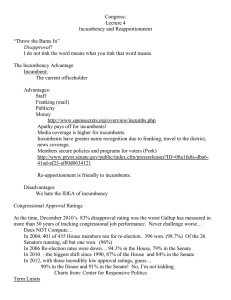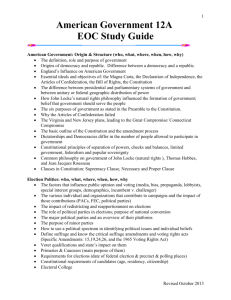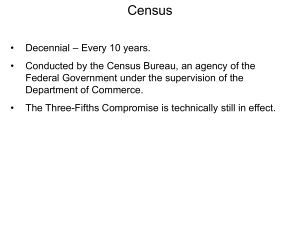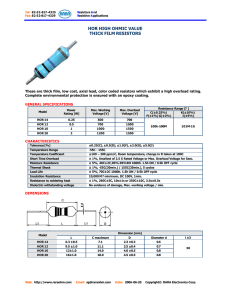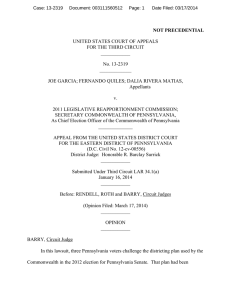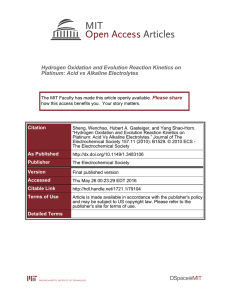Apportionment, Redistricting and the Legalities of Representation
advertisement
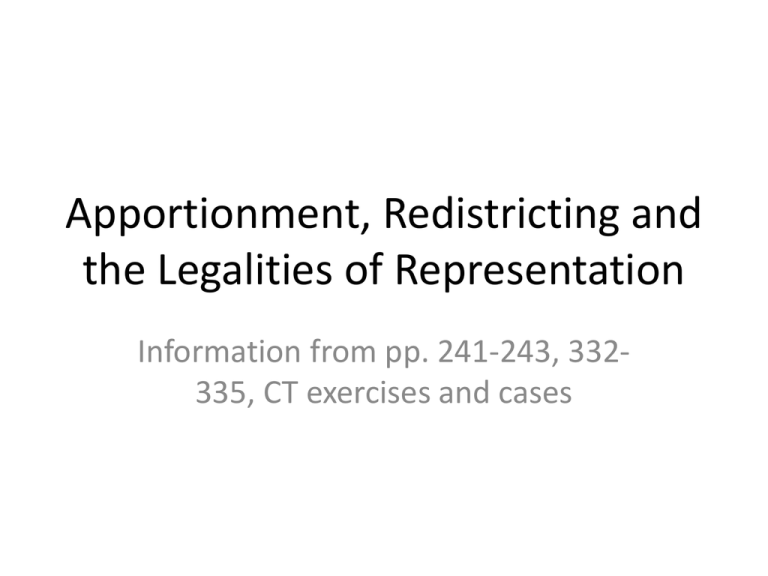
Apportionment, Redistricting and the Legalities of Representation Information from pp. 241-243, 332335, CT exercises and cases Assessment • Complete FRQ. You have 20 minutes! Apportionment of the HOR • Review basic structure of the HOR. • Define apportionment. • Watch video & view charts. http://www.youtube.com/watch?v=RUCnb5_HZc0 Seats in HOR after 2010 Reapportionment Reapportionment results 1960-2010 Reapportionment results by region 1960-2010 Discussion of Data & Charts • So what’s the big deal? • How does this impact POWER in Washington for the Congress? • For the Presidency? • Where is the shift of power going to? Coming from? Redistricting & Gerrymandering • Define each term. • Who redistricts & when? • Discuss 4 cases that relate to the above terms. • What rules govern the process? • How did redistricting impact NC? • NC Congressional Districts & Data • Why do we have minority-majority districts? Are they legal? Map of NC Districts NC Population Stats NC Population by County 2010 NC’s Congressional Districts Change in NC Population NC US District 3 by Income Evolution of the Senate • Review basic structure of the Senate. • Composition is the only provision in the US Constitution that can never be amended. (Article V) • Do a cause & effect diagram for each of the following concerning the Senate: Cause: Effect: »Small size>> »17th Amendment>> »Filibuster #1 Filibuster #2>> »Rule 22 (cloture)>> Inter-branch Checks on Powers For each power, explain how the other house checks that power or at least limits it: HOR: Holds Impeachment Power HOR: All Appropriation bills start here Senate: Must approve all treaties by 2/3 Senate: Must approve all Presidential nominees Assignment • Read pp. 335-340 & “Profile of the 114th Congress.” Take notes. Illustrate on heading to compare HOR demographics to that of the Senate. • Read “Why we love our Congressman but hate Congress” handout and complete questions. • Due Tuesday!


